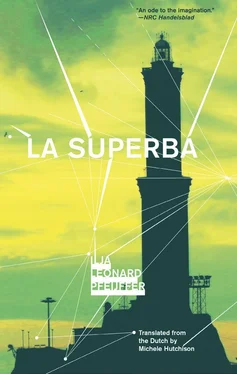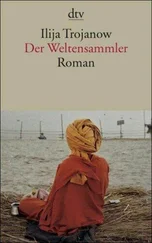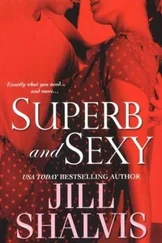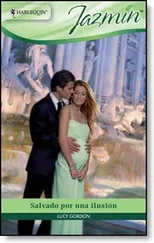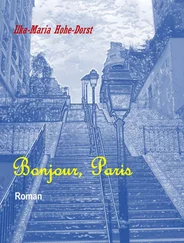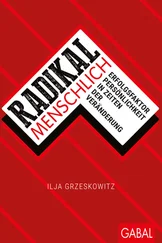“More than two hundred thousand euros for a two-year permit.”
“That’s indeed what it comes down to, Walter.”
“But no one would fall for that, would they? He’ll never find a buyer that way.”
“There’s surely a reason it was so difficult to get hold of this agreement.”
“He used his family’s leverage to keep it under wraps at the council.”
“And he settled his hopes on us, Walter. Because we’re naive foreigners and would never think of trying to track down this contract, and if we did think of it, we wouldn’t have the means or the power to actually get hold of it. That’s how his mind’s working.”
“But he could ask for a fee for the contents, of course.”
“But then we’re only talking about the fixtures and fittings in the bar and the restaurant. Everything that goes with the theater: the lights, the sound system, the removable stage, and whatever else, belongs to the council, too. It’s all specified here.”
“Really?”
“Take a look. Everything. Even the drum kit. And if we’re talking about the restaurant, it’s not even the kitchen equipment. Even that is recorded here, too.”
“So we’re talking about…”
“So all in all, we’re actually talking about the plates, cutlery, and glasses.”
“Unbelievable.”
“And even that’s not certain. Because there’s another entry here that’s not specified—‘other’—and I think that can only be those things. I can’t imagine it meaning anything else.”
“So what does that mean?”
“It means Pierluigi doesn’t have anything to sell, Walter.”
“But what does that mean?”
“What that means, Walter…” It was precisely what I’d been pondering all this time. “It means…”
“It means we don’t even need the two hundred thousand.”
“If we can convince the council.”
“That they have a problem because their theater isn’t being used.”
“The theater they spent a few million renovating seven years ago.”
“Public money.”
“Public money, Walter.”
“They’ve got a problem.”
“The trick is going to be to get them to see that, too.”
“Can we do that?”
“Alfonso.”
“Your wizard?”
“I’ll call him tomorrow. If necessary, we’ll offer him a partnership.”
“A what?”
“A partnership.”
“What does that mean, Ilja?”
“We can figure that out later.”
“I like you, you know that?”
“Cheers, Walter.”
“Cheers, my good friend. Here’s to our theater. Let’s hurry up and get the ball rolling. How’s your play coming along?”
23.
I’ve spent the past few days in the archives of the Ligurian Institute for Emigration near La Commenda at the end of Via di Pré, and just by the Galata Museo del Mare. The quantity of material is overwhelming, both in terms of the primary sources and the secondary literature. It would take months to study it all systematically. I’m not going do that, of course. I don’t need to write a scholarly account. Those days have gone. So I just read and flicked through a few things at random. But it did give me quite a reasonable impression of what things had been like. Enough of one, in any case, to be able to invent the truth.
One of the things that struck me was that many Italians who decided to emigrate weren’t really that bad off. Of course there was poverty and few ways of escaping it, but at least they had food and a roof above their heads. The character I intended to invent would be a farmer, a simple man, uneducated and illiterate. He owned a small plot of land and had built his own house on it. He lived as his parents had lived and the parents of his parents before them and their grandparents before that. And his children would have lived like that, too, if he hadn’t happened to hear of La Merica, a country further away than he could imagine, which everyone was talking about. Many men from the region had gone there. It’s important to show how unrealistic their idea of this far-off world was. I’ll have him fantasize at length about this paradise where you would get rich automatically if you were prepared to work. The streets were paved with gold, and the houses were as tall as mountains. You could eat your fill every day.
And then a recruiter comes to visit him on his farm, a stooge from one of the large emigration agencies in Genoa who signed up emigrants from the countryside on a commission basis, which the agency in turn, for a commission fee, would accommodate on one of the shipping lines crossing the ocean. I would find a way of making it clear how a complete subeconomy came into existence that revolved around exploiting and extorting money from simple souls with the dream of a better life. In fact, it was pure human trafficking. The recruiter promised our farmer golden mountains, pretty much literally, in the sense that he promised mountains of gold. He would have to sell his house and his land to pay for the crossing but it would be a small investment compared to the enormous fortune awaiting him at the other end. He’d be able to buy the whole village with it, if he wanted, and there would still be enough left to spend the rest of his days in opulence, without ever having to work again.
The next scene would have to show the dire situation on the quays. There he’d sit, our farmer, completely penniless and totally disoriented. He’d been able to arrange the necessary paperwork through the agency and all he had to do was wait until he could board. But there were lots of additional bills from the agency for things he didn’t understand but which were undoubtedly necessary. Or so they’d emphatically made clear to him. He didn’t have any lire left for a place to sleep or a hunk of bread. The prices were astronomical anyway. He felt frightened and insecure. He’d never seen that many people in one place in his life. But at the same time he felt invigorated by his dream — he would change his life and the lives of his children. He knew he was going to become a wealthy man. Everyone at the agency had assured him of that.
The Genoese observed with mixed feelings the crowds that gathered on the quays day in and day out. Some saw them as a source of income, others felt sorry for them. There was also fear. There were so many of them and the sanitary conditions were abominable. They were dirty, too. Backwards farmers from the backwoods who clearly had never learned to wash. There could be outbreaks of disease. This had happened before. In Naples, the emigrants at the port had caused a cholera epidemic that had cost the lives of many inhabitants of the city.
This is all much easier to recount in a novel than to give dramatic form as a play. I’d have to find a way to suggest the massive scale onstage and make tangible the intensity of all those conflicting feelings. To start with, I’d have to show how little space there actually was onboard. Naturally our farmer would travel third class, down below, in the ship’s hold. There was officially room for seven hundred passengers, but there were at least twelve hundred. The leading role could go and sit in a corner, on the floor next to the stairs, clutching a tin plate of paltry food between his knees. He’d sleep in his clothes and shoes on a narrow bunk among screaming children and fellow passengers so seasick they hung vomiting over the edges of their beds. It was a piece of luck getting the top bunk. The stench was unbearable. There were regular outbreaks of disease.
And then there was that continuous angst onboard that everyone tried to keep to themselves, but which gnawed away at all their bellies. It was far from certain they’d ever reach the other side of the ocean. Everyone had heard about a boat sinking on the way. I found a list in the archives and copied it. Perhaps you could simply project it onto the backdrop: March17, 1891, Utopia shipwrecked near the Port of Gibraltar, 576 dead; July 4, 1898, Bourgogne shipwrecked near Nova Scotia, 549 dead; July 25, 1901, the first Lusitania shipwrecked near Newfoundland and May 7, 1915, when the second Lusitania was sunk by a German submarine, in total 1,198 dead; August 4, 1906, Sirio shipwrecked near the Spanish coast, 55 dead; many Italians among the 1,523 dead at the shipwreck of the Titanic on April 15, 1912; November 7, 1915, an Austrian submarine sinks the Ancona , 206 dead; October 25, 1927, Principessa Mafalda shipwrecked off the Brazilian coast, 314 dead; July 2, 1940, Arandora Star sunk by a German submarine, 446 dead. And I don’t even know if the list is complete.
Читать дальше
